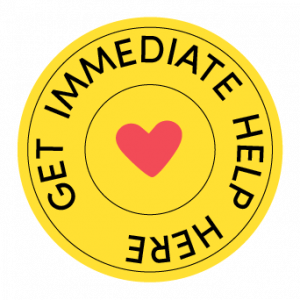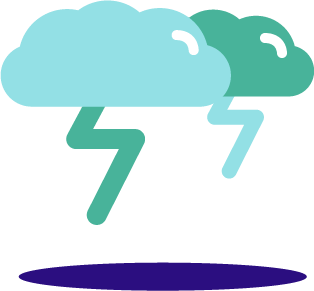Taking Care of Your Mental Health

You probably do a number of things to take care of your physical health, such as brushing your teeth, sleeping regularly, exercising, and getting annual physicals. Mental health is no different. There are things you can make a habit of—such as getting good sleep, moving your body, and connecting with your support network—that will help you maintain or improve your mental health.
Head to Relationships and Self-Care for ideas for how to prioritize your well-being in college, and check out this guide to taking care of yourself to pick a few things to make part of your new routine.
Getting Support When You Need It

You probably see your primary-care provider when you have pains or concerns about your health, and, when you need it, they can prescribe treatments and lifestyle changes that will improve your symptoms and make you feel better. Mental health is exactly the same.
Whether or not we have a mental health diagnosis, we all need support at one time or another. But sometimes finding a mental health provider who is right for you, knowing what to say, and how—or whether—to share your experiences with your family and friends can be scary, frustrating, or confusing. Learning how to seek help is a skill that will improve your college experience and keep you well your whole life.
If you decide it’s time to speak with someone, then the first step is, of course, finding them. There are many ways to do this. As a student, you’ll often have access to mental health support on your campus. Read about how to get physical and mental health care at your school. You aren’t limited to the health providers at your school. If your school doesn’t offer these services, you have trouble getting an appointment, or you don’t find a fit at the campus counseling center, then there are other ways to find a provider. Check out JED’s guide How to Get Help for lots of ideas of where to find affordable care that will work for you.
After finding a provider, sometimes you won’t get to speak with them as soon as you feel you need to. That can be extremely frustrating, and, in some cases, scary. (Remember that if you ever feel you are in immediate danger, click the yellow button on the bottom of the screen for resources.) If it is not an emergency, remember there are things you can do and support you can seek while you wait for your care to begin.
One-on-one counseling and therapy are not the only types of support, and it’s important to know that—whatever you are going through—you are not alone. Peer support groups are everywhere on campus, and they can be helpful on their own or in addition to professional mental health care. Ask what is available at your school or see if there is a NAMI Connection or NAMI Family Support program in your community. You can watch a video about NAMI support groups here, and learn more about peer support here and here.
In some cases you may want—or need—to share what you’re going through with your family, parents, or guardians. Sometimes that can feel more difficult than finding a provider. Here are guides to help you feel more comfortable with it and manage any family conflict that may pop up.
If you are currently diagnosed with a mental health condition or you receive a diagnosis while at school, you may feel you’ve been met with a whole new problem: How do you tell people? That’s a great question to talk over with your mental health provider. Here are more tips on how to share a mental health diagnosis with the people in your life.
Crisis Planning and Suicide Prevention

A few things are—and always will be—true: You matter, you are wanted, you are needed, and you are not alone. But there are times when you may feel these aren’t true for you. (If this is one of those times, please use the yellow circle at the bottom of the screen to speak with someone now.) Understanding hopelessness, suicidal thoughts, and how to prevent suicide are some of the most important things you’ll ever learn—in college or out.
Mental health
Mental health crises can and do happen—sometimes when you don’t see them coming—so it’s good to have a management plan in place in advance.
Feeling sad or down
Feeling sad or down is something everyone experiences at one time or another. However, if these feelings last longer than a couple weeks, seem to be getting more intense, are interfering with your daily life, or include thoughts or plans about suicide, then it’s critical that you get support immediately. Visit JED’s suicide resource center to find out suicide warning signs, how to know when you—or someone else—needs help and how to start the conversation and find it. has information on what you can do if you’re feeling hopeless or thinking about suicide. Additionally, it’s important to understand the difference between sadness, suicidal thoughts, and suicidal behaviors.
Hopelessness
Sometimes you may not be the one experiencing hopelessness or suicidal thoughts, but you suspect someone you know may be feeling that way. What do you do? There are signs to look for and steps to take to ensure the person gets the help they need, as well as easy ways to start a conversation with a friend you are worried about.
Immediate danger
If you, or someone you know, is in immediate danger:
- Call 988
- Text START to 741-741
- Call the National Suicide Prevention Lifeline at 1-800-275-8233 (TALK)
- Go to your nearest emergency room or use the yellow circle at the bottom of the screen to talk to someone now.
Mental Health Conditions

Mental health conditions are a common part of life, and there is nothing to be ashamed of if you or someone you love lives with one. Learning about the types of mental health disorders, as well as the signs that one or more illnesses may be present, can help you not only determine when to seek guidance or support, but also better understand and support the people in your life who are living with one or more of these conditions.
Here are common mental illnesses students (and everyone!) can experience, as well as signs and symptoms to be aware of.






